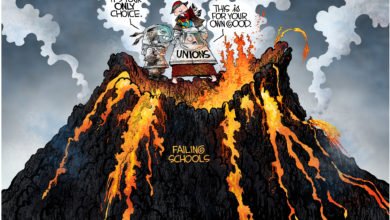Real World Unexpectedly Not Obama's Utopia
 Our current President promised us “hope”, “change”, and prosperity. These are the usual promises of politicians, but these, most Americans believed. The wars would end, the Iranians would listen, the EU is a model to be replicated, global warming would cause heat and drought, foreclosures would cease, being tough on terror, and middle-class Americans would not see increasing taxes.
Our current President promised us “hope”, “change”, and prosperity. These are the usual promises of politicians, but these, most Americans believed. The wars would end, the Iranians would listen, the EU is a model to be replicated, global warming would cause heat and drought, foreclosures would cease, being tough on terror, and middle-class Americans would not see increasing taxes.
There are also the promises we were hoping would not come true: carbon trading markets (cap and trade), government-run healthcare (health care reform), socialistic ownership of American production (government ownership of GM), etc.
So this story is a good news, bad news item. The bad news is that Obama isn’t finished pushing health care while Americans are worried about the jobs they do have and the ones they used to have. The President is now treating American war foes as common criminals, aspiring to track the locations of our cell phones, and ignoring the wishes of the voting population by pushing health care when citizens really desire a business-friendly approach to fixing the economy and jobs situation. Oddly-enough, if business has a tough time, they don’t hire. The Administration can direct the anger and hatred of American voters against corporation, corporate leaders and businesses, but in the end, that’s where jobs come from.
The real estate bubble was created by Washington, it has been exacerbated by Obama, and now his administration is actually missing the next mess that they helped create: the commercial real-estate bust.
All of the housing stimulus put in-place by Obama, two housing programs (MHA and HARP) and the ARRA stimulus fiasco. Then we can look ant the antithesis: absolute contempt for free-market small business, hatred of capitalism, and admonishment of success.
So how is that working? Well, foreclosures in January were up 15% over last year (the height of the mess), a government watchdog (the true responsibility of journalism) report says that commercial real-estate is the next shoe to drop and it’s coming real soon, the administration and democrat congress are still protecting the largest financial institutions involved in the financial collapse (Fannie-Mae and Freddie-Mac). It’s OK to go after the small manufacturer, take over GM and AIG, and destroy the American energy industry… those are only jobs – We must save the government-run, root cause of the crisis – the Congressionally-regulated U.S. mortgage industry.
From an international perspective, Utopia is thriving… I think. The German PM, Angela Merkel, has gone against the administration and thumbed it’s nose at the righteous European Union that Obama wishes America would become a copy of. The Iranians are ignoring his hiatus on sanctions, open hand, free discussions and continuing their nuclear program despite Obama’s unrealistic view of the real world.
While Obama is busy promoting the mess he has created, his administration is pushing policies that are truly disturbing. The Obama White House has made statements that support the tracking of non-criminal American citizens via their cell phones without so much as a warrant:
“..the Obama administration has argued that warrantless tracking is permitted because Americans enjoy no “reasonable expectation of privacy” in their–or at least their cell phones’–whereabouts. U.S. Department of Justice lawyers say that “a customer’s Fourth Amendment rights are not violated when the phone company reveals to the government its own records”
The world is not Utopia Mr. President, it is not what your book or imagination or father dreamed it would be. It’s the real world, and unlike you… we live in it – a jobless, over-taxed, heavily-government-debted life.





Hey I found your page by mistake on google while trying to find something completely irrelevant but I am really pleased that I did, You have just captured yourself another subscriber. 🙂
Hi nice read you should add your stories on Shout Space
Regardless of the reasons, I think there are three items which do not bode well for commercial real estate prices in the next few years. First and perhaps most overlooked, investment or income producing properties, during the boom years, where purchased more for appreciation, rather than “income”. In other words, many deals were justified by investors who were willing to forego a rate of return (income), for future price appreciation. But as its name suggests, this is not what “income producing property” is all about. If it doesn’t give you an income stream in good times, it sure won’t be able to in bad ones. Only a “flipper” can make money on appreciation, and the trick is to know when to get in and when to get out. Second, the credit crisis has reduced the chances of obtaining loans, and also the leverage previously afforded owners/purchasers. Less money means less deals, and more cash out of pocket. This can only lead to lower prices. Third, we are for now in a “new” economy (although Americans often prove to be driven by fads and can be short sighted), where we will consume less, which should mean less need for commercial space. If there is one truth that history makes clear over and over again, it’s that most sectors of the economy will move in conjunction with one another, not in spite of one another. No doubt prices are tied to supply and demand issues, but too much of a swing invites change. So when prices double and triple in one sector while the rest of the economy isn’t going in that direction, chances are some force will snap that imbalance back into its proper place in the overall economy. And that change can be from social, economic, and/or political means.